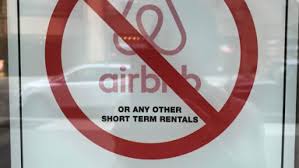 October 2021
October 2021
As pandemic restrictions ease and more people travel, many will choose a short-term rental –perhaps one in your building.
Owners offering short-term rentals go to great lengths in hiding this. You may be told those moving into a unit are family. That person rolling in luggage may be described as a friend staying for a short visit, and having departed a few days later.
Short-term rentals are one of the toughest issues for condominium communities to control. What should a responsible board do?
The reality is that some owners feel they have the right to rent their home to tourists or others seeking cheaper accommodation. Others want to avoid living in a building that becomes a hotel. Regardless of your perspective, short-term rentals are clearly allowed or disallowed in a condominium building. The decision was made when the building first opened by way of its declaration, or changed by owners through a by-law. Current owners purchased a unit in their building with a clear understanding that short-term rentals were allowed or disallowed. No condominium corporation has authority to change this understanding without strong support of owners in the form of a vote to revise governing documents.
One way communities seek to restrict short-term rentals is to establish a minimum lease term – typically six or 12 months. This helps avoid units being used for transient housing which results in increased security risk, greater wear and damage in common areas, and increased elevator demand for moving which restricts access for the majority of residents. Another approach is to impose restrictions on non-resident occupancy. Poorly implemented and without flexibility, such restrictions – typically, changes to condo rules – may prevent an adult child or parent from moving in with family, or a senior from obtaining live-in assistance. Exceptions to rules may be allowed with a fee for additional residents to cover the added cost of utilities and common area use. Neither approach is a replacement for updating governing documents to prohibit short-term leasing.
To ensure everyone is clear on what is allowed, consider distributing a one-page document identifying short-term rental policies as provided in the declaration and rules. Residents can be encouraged to advise the concierge, security or management office when they suspect a suite is improperly used for short-term stays. Security, concierge and management can be instructed to log date and noted conduct for those suspected. Those entering with suitcases can be confirmed as residents or visitors and logged along with suite number. Immediate measures to deter improper use of a suite for short-term rentals include denial of access to a building or common areas by deactivating electronic fobs.
Condominium corporations are not in the business of screening owners, residents or guests. They impose rules intended to be fair while allowing accommodation for situations deemed reasonable. Condo owners always remain responsible for the actions of their tenants and guests. When problems arise, the corporation will likely reach out to the owner to address tenant or guest concerns.







